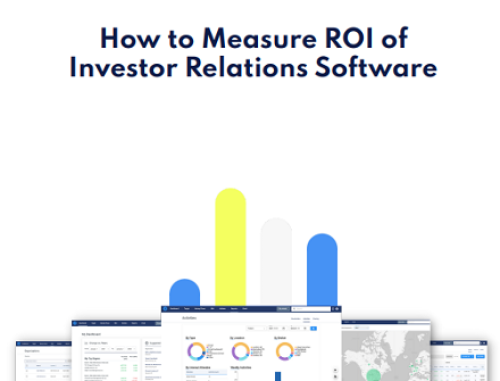Highlights from IR Magazine’s recent webinar about how automation, big data and algorithms can transform IR in the future
Recent research from McKinsey & Company outlined how automation will change the future of work.
In the whitepaper Where machines could replace humans – and where they can’t (yet), the consulting firm divided work into seven activities and assessed the extent to which they could be automated over the next decade.
Data processing and data collection are the two most automatable activities, according to the study, while the three least automatable activities are managing stakeholder interactions, applying expertise, and managing others.
McKinsey’s contention is that there won’t be too many jobs that are entirely automated, but almost every job will be subject to some form of automation.
This research provided the framework for our recent webinar about how technology is changing the everyday lives of IROs, where we discussed which processes could be automated and how IROs could focus on providing more strategic value.
‘One of the largest changes that we’ve seen in terms of technology and market structure has to do with trading,’ Scott Powell, executive vice president and head of investor relations with VolitionRX, explained in the webinar.
‘With the rise of automated trading and algorithmic trading…there’s been a net benefit to investors and perhaps the trading public.’ That’s not to say that these developments haven’t given rise some challenges for IROs and issuing companies though. ‘It’s created some anonymity about is coming in and out of your stock on a daily basis,’ noted Powell.
Adam Frederick, senior vice president of intelligence at Q4, agreed, outlining the technology enhancements that are beginning to enter the IR space.
‘What technology has really brought to the forefront of the capital markets – and now IR – is speed, ease of data analysis, greater transparency, better accuracy, timelier and more actionable intelligence, as well as predictive intelligence,’ Frederick said.
He also discussed how the capital markets have been using data analytics to augment their decision-making – highlighting the use of advanced algorithms by sell side analysts for research purposes, while the buy side has been able to analyze trading patterns to predict market patterns, optimal trading times and new investment ideas.
‘The single biggest change in the markets is big data analytics,’ Frederick said. ‘The biggest takeaway for IROs is that technology has transformed and is transforming the capital markets…it’s the most significant technological advent I’ve seen.’
The webinar outlined how this technology can help IROs to monitor stock performance, better target shareholders ahead of roadshows, and identify activists when they’ve entered the stock.
But it also covered how IROs could use these tools to be more proactive – for instance, gauging sentiment from shareholders ahead of quarterly earnings call, to amend management’s talking points to best position them in front of the market.
When reflecting on the subject of automation, Powell said: ‘There are certain functions that can be automated for an IRO and some that can’t. Engaging with investors and explaining milestones can’t be [automated]. But one area that has been challenging for me is the rise in passive investing.’
Powell explained how Vanguard had recently entered VolitionRX’s stock, something he and his management were happy to see. However, he then realized that no one at the firm had talked to anyone at Vanguard.
‘I really pride myself on being able to talk with our large institutional investors on the phone,’ Powell continued. ‘It’s a little frustrating that I don’t know who to talk to.’
In addition to algorithmic automation for surveillance and monitoring, IR Magazine recently covered the rise in automated earning releases, which is changing the nature of quarterly reporting for many small cap IROs.
Listen to the full webinar here, where we cover other practical examples of how new technology can change the role of IROs in the future.










